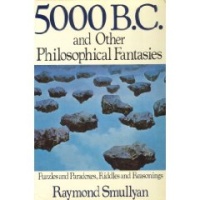Mark Dominus (陶敏修)
mjd@pobox.com

Archive:
| 2026: | J |
| 2025: | JFMAMJ |
| JASOND | |
| 2024: | JFMAMJ |
| JASOND | |
| 2023: | JFMAMJ |
| JASOND | |
| 2022: | JFMAMJ |
| JASOND | |
| 2021: | JFMAMJ |
| JASOND | |
| 2020: | JFMAMJ |
| JASOND | |
| 2019: | JFMAMJ |
| JASOND | |
| 2018: | JFMAMJ |
| JASOND | |
| 2017: | JFMAMJ |
| JASOND | |
| 2016: | JFMAMJ |
| JASOND | |
| 2015: | JFMAMJ |
| JASOND | |
| 2014: | JFMAMJ |
| JASOND | |
| 2013: | JFMAMJ |
| JASOND | |
| 2012: | JFMAMJ |
| JASOND | |
| 2011: | JFMAMJ |
| JASOND | |
| 2010: | JFMAMJ |
| JASOND | |
| 2009: | JFMAMJ |
| JASOND | |
| 2008: | JFMAMJ |
| JASOND | |
| 2007: | JFMAMJ |
| JASOND | |
| 2006: | JFMAMJ |
| JASOND | |
| 2005: | OND |
Subtopics:
| Mathematics | 245 |
| Programming | 100 |
| Language | 95 |
| Miscellaneous | 75 |
| Book | 50 |
| Tech | 49 |
| Etymology | 35 |
| Haskell | 33 |
| Oops | 30 |
| Unix | 27 |
| Cosmic Call | 25 |
| Math SE | 25 |
| Law | 22 |
| Physics | 21 |
| Perl | 17 |
| Biology | 16 |
| Brain | 15 |
| Calendar | 15 |
| Food | 15 |
Comments disabled
Sun, 13 Dec 2009
World's shortest explanation of Gödel's theorem
A while back I started writing up an article titled "World's shortest
explanation of Gödel's theorem". But I didn't finish it, and
later I encountered Raymond Smullyan's version, which is much shorter
anyway. So here, shamelessly stolen from Smullyan, is the World's
shortest explanation of Gödel's theorem.
We have some sort of machine that prints out statements in some sort of language. It needn't be a statement-printing machine exactly; it could be some sort of technique for taking statements and deciding if they are true. But let's think of it as a machine that prints out statements.
In particular, some of the statements that the machine might (or might not) print look like these:
| P*x | (which means that | the machine will print x) |
| NP*x | (which means that | the machine will never print x) |
| PR*x | (which means that | the machine will print xx) |
| NPR*x | (which means that | the machine will never print xx) |
For example, NPR*FOO means that the machine will never print FOOFOO. NP*FOOFOO means the same thing. So far, so good.
Now, let's consider the statement NPR*NPR*. This statement asserts that the machine will never print NPR*NPR*.
Either the machine prints NPR*NPR*, or it never prints NPR*NPR*.
If the machine prints NPR*NPR*, it has printed a false statement. But if the machine never prints NPR*NPR*, then NPR*NPR* is a true statement that the machine never prints.
So either the machine sometimes prints false statements, or there are true statements that it never prints.
So any machine that prints only true statements must fail to print some true statements.
Or conversely, any machine that prints every possible true statement must print some false statements too.
The proof of Gödel's theorem shows that there are statements of pure arithmetic that essentially express NPR*NPR*; the trick is to find some way to express NPR*NPR* as a statement about arithmetic, and most of the technical details (and cleverness!) of Gödel's theorem are concerned with this trick. But once the trick is done, the argument can be applied to any machine or other method for producing statements about arithmetic.
The conclusion then translates directly: any machine or method that produces statements about arithmetic either sometimes produces false statements, or else there are true statements about arithmetic that it never produces. Because if it produces something like NPR*NPR* then it is wrong, but if it fails to produce NPR*NPR*, then that is a true statement that it has failed to produce.
So any machine or other method that produces only true statements about arithmetic must fail to produce some true statements.
Hope this helps!
(This explanation appears in Smullyan's book 5000 BC and Other Philosophical Fantasies, chapter 3, section 65, which is where I saw it. He discusses it at considerable length in Chapter 16 of The Lady or the Tiger?, "Machines that Talk About Themselves". It also appears in The Mystery of Scheherezade.)
I gratefully acknowledge Charles Colht for his generous donation to this blog.
[ Addendum 20091214: Another article on the same topic. ]
[ Addendum 20150403: Reddit user cafe_anon has formalized this argument as a Coq proof. ]
[ Addendum 20150406: Reddit user TezlaKoil has formalized this argument as an Agda proof. (Unformatted version) ]
[Other articles in category /math] permanent link



